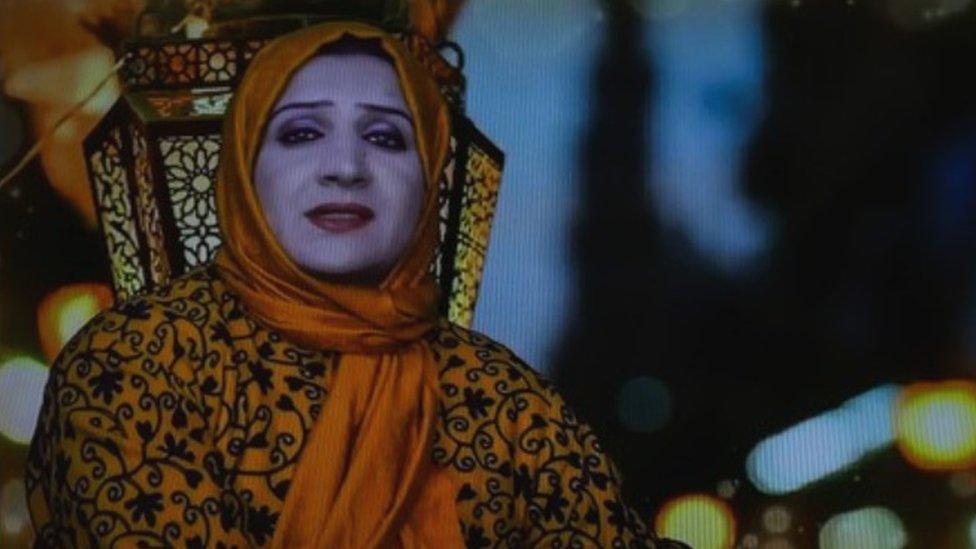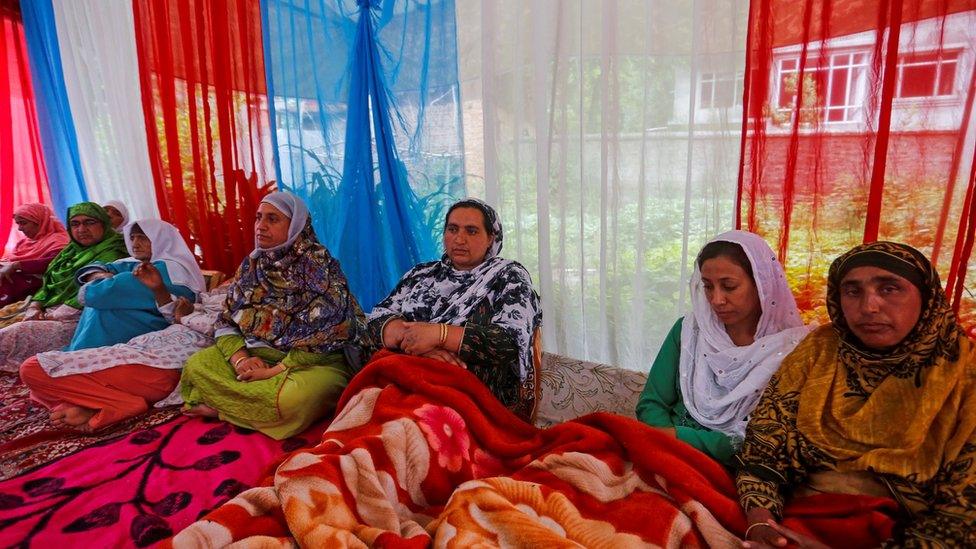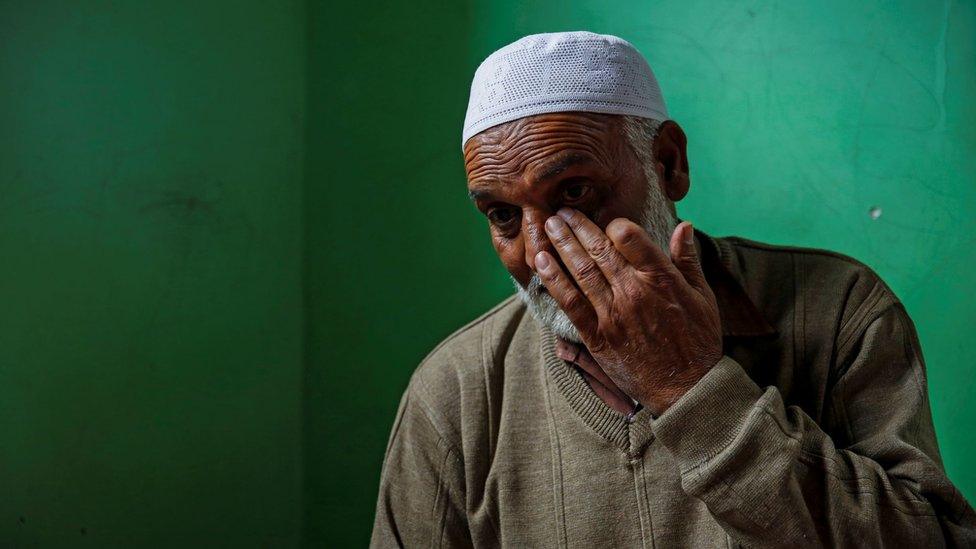Amreena Bhat: The ‘senseless’ murder of a Kashmiri TV actor
- Published

Amreena Bhat had thousands of followers on social media
The murder of Amreena Bhat, a television actor and singer who had thousands of followers on social media, has led to shock and disbelief in Indian-administered Kashmir. Freelance photojournalist Abid Bhat (no relation to Amreena) visited her family members, who are trying to come to terms with their loss.
On the evening of 25 May, Amreena's brother-in-law Zubair Ahmad Shaikh was praying at a mosque in Kashmir's Budgam district when he heard gunshots, followed by screams.
He rushed out and ran into his house nearby, where he found Amreena, 30, bleeding heavily.
"Blood was splattered everywhere," he recalls, pointing at the wall of her room.
Two men had approached Amreena on the pretext of booking her for a programme, says her nephew Farhan, 11, who was with her at the time. But when she asked them questions, they took out a gun and fired at her, he says.
When she ran inside, one of the men followed her and shot at her again. A bullet hit Farhan's arm as well.
The family struggled to find a car to rush Amreena and Farhan to the hospital. By the time they got there, she was already dead. Farhan was later discharged.
Amreena's murder was among a series of attacks by suspected militants over the past few weeks in Kashmir, a picturesque region that has been ravaged by conflict and violence for decades.
Both India and Pakistan claim the territory in its entirety but control only parts of it. The region has also witnessed a violent insurgency against Delhi's rule since 1989.

Mourners at Amreena's house in Budgam
Days before the attack on Amreena, a government employee from the minority Hindu community was shot dead inside his office by militants in Budgam district. This week, a female government school teacher was killed in what a former chief minister described as a "despicable targeted attack", external.
Two days after Amreena's death, Kashmir police said they had killed her murderers, external, described as two men who had recently joined the militant outfit Lashkar-e-Taiba - a Pakistan-based group that has been blamed for several attacks on Indian soil.
But they haven't yet given a reason for why Amreena was targeted.
Her father Khazir Mohammad Bhat says he has no idea why his daughter, who was the family's main breadwinner, was attacked. The family is now trying to come to terms with her "senseless" murder while worrying about what the future holds.
Khazir Bhat says he was initially against his daughter's singing ambitions - she had dropped out of school as a teenager to focus on music.
But he changed his mind after his wife died in 2008.
"My wife had told me Amreena was hurt because of my opposition [to her singing] and that we should let her follow her passion," he says, his eyes welling up.
Amreena went on to work with small-time cable channels with her family's support. But her popularity was limited until she started uploading videos on social media.
When she died, she had more than 25,000 followers on Instagram, where she would upload videos of herself lip-syncing to songs and dialogues from movies. The profile, which was flooded with condolence messages after news broke of her death, has now been deleted.
On YouTube, where she uploaded short sketches, Amreena had more than 19,000 subscribers as of Monday. Many comments beneath her videos - which included light-hearted takes on issues such as Kashmir's power shortage - praised her acting and choice of topics.

Khazir Mohammad Bhat says he has no idea why his daughter was attacked
Amreena's father says she also participated in government programmes to mark events such as India's Independence Day and Republic Day. A shelf in her room has a number of awards inscribed with her name.
"She was popular and everyone knew her," he says, adding that politicians from different parties had visited the family to pay their respects.
Like most television artists in Kashmir, Amreena was also finding it hard to get acting jobs, especially since state broadcaster Doordarshan was no longer a reliable source of gigs.
A veteran local actor told the BBC on condition of anonymity that acting opportunities had dried up over the past few years, with the situation worsening since 2019 - when India revoked Article 370, a clause in the country's constitution which gave Kashmir significant autonomy.
The government also imposed severe restrictions on mobility and communication that lasted months. This was followed by the Covid-induced lockdown, which further strained livelihoods.
That, perhaps, was why Amreena turned to social media to showcase her skills.
To her nephew Farhan - whose arm is in a cast - Amreena was a loving aunt who paid his school fees, bought him clothes and allowed him to use her mobile phone to play games.
"She had promised to buy me a computer next year," he says.

You might also be interested in:
Watch this all-female band perform their Islamic devotional music - something they've faced a lot of opposition for doing
